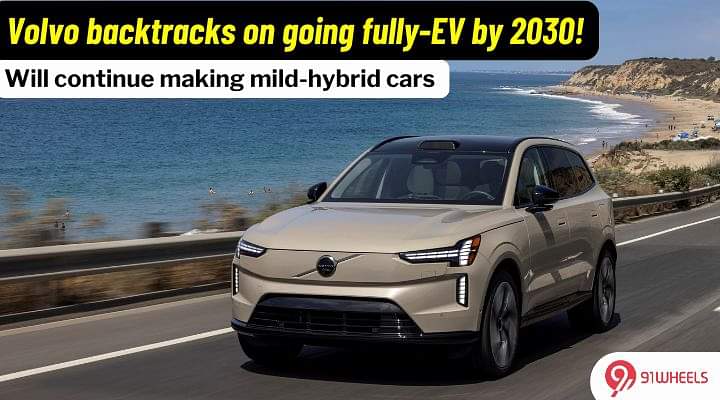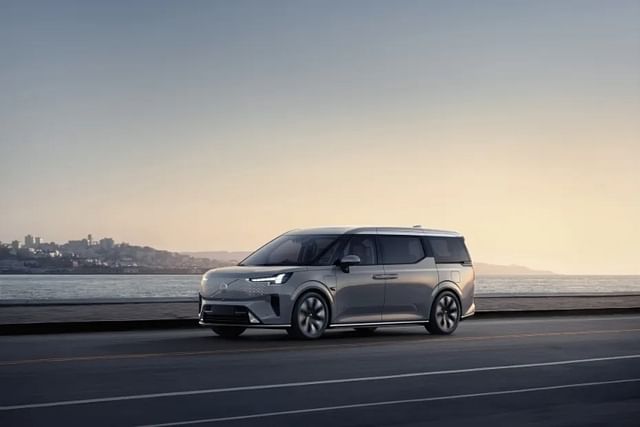
KEY HIGHLIGHTS
- The car maker says 10% of its cars will be powered by mild-hybrids beyond 2030.
- Volvo had earlier targeted becoming an EV-only brand by 2030.
- 90% of Volvo's sales to come from EVs and plug-in hybrids.
Volvo was among the first car makers to have pledged a timeline for going full electric. In fact, it had even signed the Glasgow Declaration at the UN Climate Change Conference a few years ago, which is one of the steps it is taking to achieve carbon neutrality by 2040. However, owing to changing market demands, the Swedish car maker is now re-adjusting its strategy, which previously was to go all-electric by 2030.
Before taking a deeper look at this story, make sure to join the 91wheels WhatsApp Community to stay up-to-date with the latest buzz from the automotive world, and to get in touch with like-minded enthusiasts!
Volvo's Change Of Plans To Go Full-Electric By 2030; What Happened?
As many of you might have noticed, there seems to have been a shift in the demand of electric cars globally. This shift has been noticed particularly in the premium car segment, with players like Mercedes-Benz and Aston Martin having back-tracked their plans of going full-electric by 2030. According to rumours, Fiat is also reportedly considering a plug-in hybrid version of the 500e sold globally.

Such has been the impact that even Volvo, which was known for being one of the early believers in electric vehicles, has now backed down from its promise of going full-electric by 2030. The Swedish car maker had earlier estimated 50% of global car sales to be all-electric by 2025, and that it would only sell all-electric cars by 2030. However, it now expects 90% of its global car sales to come from all-electric and plug-in hybrid vehicles, with the remaining 10% from a limited number of mild-hybrid models.
Also read: Volkswagen Compact SUV Teased Ahead Of Debut: Skoda Kylaq Twin

The car maker says it has taken this step due to a wide range of reasons; while there has been a change in market conditions and customer demands, the rollout of charging infrastructure has also been slower than expected. Also, the withdrawal of government incentives and uncertainties created by new tariffs on imports in other markets has led not just Volvo, but other car makers to prepare accordingly.

With its updated strategy, Volvo will continue to keep its lineup as wide as possible, with a range of mild-hybrid, plug-in hybrid, and all-electric cars, thus offering the customers a choice to select the ideal power source for their car. However, its ambition of becoming an all-electric car company remains, and it believes that this new strategy will help it make the full move to EVs when the market conditions are suitable.
Also read: 2024 Tata Punch Top Highlights: Digital Cluster, Wireless Charging & More
Verdict
While EVs themselves are a hugely debatable topic, the fact is that in this case, it is you, the customer, who wins, as you rightly get to decide the fuel source of the vehicle you choose to buy.





















